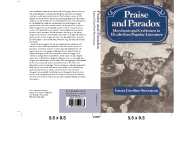Book contents
- Frontmatter
- Contents
- Acknowledgements
- Prefatory note
- Introduction: praise and paradox
- PART I ELIZABETHAN POPULAR LITERATURE
- 1 Elizabethan popular literature and its economic context
- 2 The popular Elizabethan authors
- 3 The popular Elizabethan audience
- PART II THE BUSINESSMAN IN ARMOUR
- PART III THE GENTLE CRAFTSMAN
- APPENDICES
- Index
- Past and Present Publications
1 - Elizabethan popular literature and its economic context
Published online by Cambridge University Press: 29 October 2009
- Frontmatter
- Contents
- Acknowledgements
- Prefatory note
- Introduction: praise and paradox
- PART I ELIZABETHAN POPULAR LITERATURE
- 1 Elizabethan popular literature and its economic context
- 2 The popular Elizabethan authors
- 3 The popular Elizabethan audience
- PART II THE BUSINESSMAN IN ARMOUR
- PART III THE GENTLE CRAFTSMAN
- APPENDICES
- Index
- Past and Present Publications
Summary
The first problem that confronts a historian who wishes to examine social perceptions in literature is deciding how to select a canon of works to study. Clearly, it is important that these works have been popular in the age in which they were written. Since literature offers a structure that enables men to reflect upon a variety of problems, works that attain popularity presumably do so because they offer many readers a way of sorting out their ideas on subjects of common interest – even though that structure may later seem simple or inadequate. Conversely, works that appeal to ‘fit audience, though few’ attain little popularity because they do not offer insights to a wide audience, although the insights they do provide may prove, in retrospect, to have been excellent. Thus, the primary criterion for choosing a work to study must not be its literary excellence or even its social perceptiveness, but its ability to draw an audience to the stage, pulpit, or bookstall.
At the first stages of selecting a canon of literature, it is dangerous to look for works that were popular with one particular social group. Some of the most popular works in Elizabethan England appealed to people of many social levels; to say that the great dramatists of the stage and pulpit – Shakespeare, Perkins, Dent, Smith – drew only one social group is to distort the depth and breadth of their contemporary impact.
- Type
- Chapter
- Information
- Praise and ParadoxMerchants and Craftsmen in Elizabethan Popular Literature, pp. 11 - 39Publisher: Cambridge University PressPrint publication year: 1984

